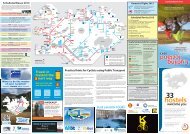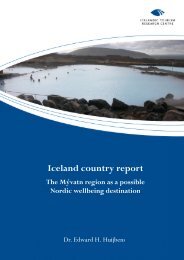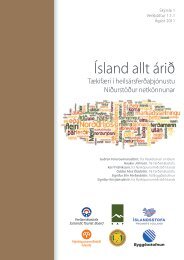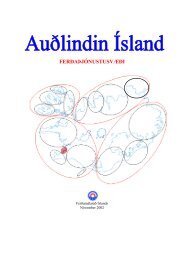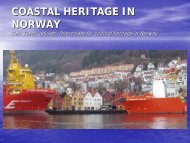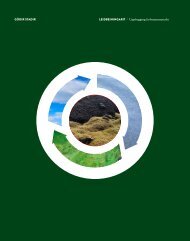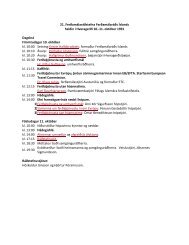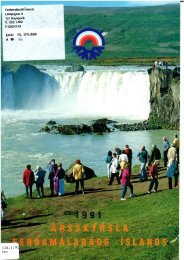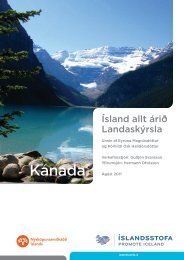Untitled
Untitled
Untitled
You also want an ePaper? Increase the reach of your titles
YUMPU automatically turns print PDFs into web optimized ePapers that Google loves.
Whatever the specifics and forms of these processes of mobility,<br />
they reinforce the argument that boiled down to its essentials tourism is a<br />
geographic phenomenon. And so is the tourist. As an embodied<br />
geographical being every tourist is faced with the challenge of overcoming<br />
the friction of distance between different locations and places on the Earth.<br />
In that perspective, the tourism production system is nothing but the<br />
supplier and constructor of means to overcome that friction and channel<br />
flows of tourists in and through particular geographical ways.<br />
To take a place or to give up a place, that is the whole question (Serres<br />
1995, p. 74).<br />
To take, or give up, a place usually involves and requires nonhumans<br />
with their (im)mobilities and geographies. In tourism mobility this<br />
means that tourists simply do not travel to Iceland alone, or by the social<br />
force that comes from their human agencies only. Aeroplanes, ships,<br />
material accessibility networks, and systems of transportation make them<br />
movable too. And when tourists have returned home from travelling the<br />
non-humans are there once again, ready to stand in and help memory grasp<br />
passed experiences of what forever remains away. Yet, every tourist<br />
knows too that the pictures shown and the stories told cannot fully represent<br />
the experience of the places visited, nor re-wind the trip as a<br />
whole. The difference between being there and representing it here can<br />
never be completely erased: “That was such a nice and lovely place. If you<br />
don’t believe me, you better go there and see for yourself”.<br />
Such, then, is the geographical condition of the tourist, but what<br />
about the tourism researcher? As it turns out, any researcher in any field of<br />
science is very much facing the same geographical problem as the tourist,<br />
that is, how to make a journey between here and there. More precisely, for<br />
the researcher this creates a research methodological problem of how to<br />
bridge the geographical gap between here and there.<br />
52



